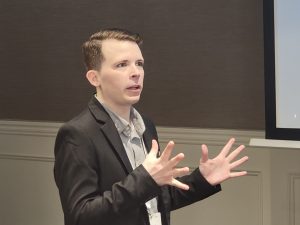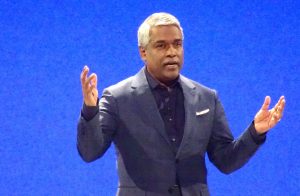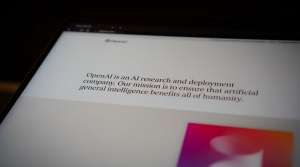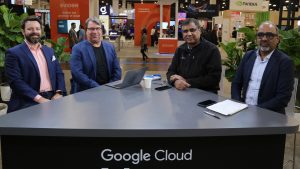Headlines Proclaiming Things Dead are Dead [Recursion Error]
![]() I was just going to comment on this as a shared item, but I don’t think I can keep this rant of Andy Rooney-ish proportions down to few enough words to work for that little text box.
I was just going to comment on this as a shared item, but I don’t think I can keep this rant of Andy Rooney-ish proportions down to few enough words to work for that little text box.
There’s an article by PR blogger Adam Singer that my buddies Mark Dykeman and Louis Gray shared out this week called “The Buzzword Social Media is DOA in 2010.”
First of all, on the topic addressed by the headline, let me just say that I’m one of those guys who will unabashedly use the term “social media” loudly and often because it’s an apt description for what it is I work with on a daily basis. I produce words, pictures and video in an environment where I expect others to interact and communicate with it and me.
That is, without a doubt, social media. If you can’t handle me using those words, you should probably stop reading me now and never read me again. I use them pretty often, and I wouldn’t want your tender sensibilities offended.
Calling Things Dead is Dead
![]() Second of all, whenever someone says “XXXX is DEAD,” you can bet your bottom dollar that the “XXXX” that they’re talking about is most certainly not dead in all senses or usages of the word.
Second of all, whenever someone says “XXXX is DEAD,” you can bet your bottom dollar that the “XXXX” that they’re talking about is most certainly not dead in all senses or usages of the word.
Quite often, when they say something is dead, they mean the business around that something, or perhaps the mainstream usage of that something. Truth is, though, that the something they’re talking about will continue to exist long after the author ceases to exist, even though the thrust of the post behind the flawed headline was probably on the mark.
The headline, though, while it may get pageviews destroys credibility. If I ever use the word “dead” in a headline (at least from here on out), the thing I’m talking about better be deader than the ol’ stuffed parrot from the Monty Python skits.
Here’s what I really wanted to talk about in Adam Singer’s article, though:
The Blog is Called “The Future Buzz.”
That’s the name of the post. The first five (or even more if you read them a certain way) paragraphs of post are bashing the usage of buzzwords.
I just found that a bit ironic, I suppose.
Is This Post from the Future?
The third paragraph consists of one sentence. It reads: “This definition perfectly describes the largest buzzword of 2009 and 2010: social media.”
2010? Not sure which calendar Adam uses, but mine still says 12/27/2009.
The Internet Is Not Social Media
Adam makes a statement that sounds like something our buddy Steven Hodson might say:
“Let me repeat this again: this is not social media. This is the internet. And the internet isn’t going away. Whether the buzzword social media lasts is another story.”
In fact, he pulls a classic Steven Hodson quote immediately after dropping that quote:
Just because we slap a new term and some soothing pastel web pages together it doesn’t invalidate what came before it. It doesn’t change the fact that we have been socializing on the web long before someone invented the marketing term of social media. It sometimes seems though that the tech world has this inbreed need to proclaim something as new and totally different than what came before when in fact this isn’t the case.
Here’s the thing, and I’m sure Steven would agree: there are aspects of the Internet that aren’t social media. DNS isn’t a social protocol. Usenet may be the original real time web, but Archie and Veronica weren’t a very social form of media. In fact, the Web up until a couple years ago, wasn’t very social, and still doesn’t constitute the totality of the Internet or what it does.
Certainly, the primary function of the Internet is to facilitate communication, but it bugs me to see folks like Adam Singer make the same mistake that folks like Mike Arrington and others made when Google first announced the launch of Chrome OS – mixing up their terms.
Just because Google is launching an OS that shares the name of a browser doesn’t mean that a browser is the same thing as an operating system. Likewise, because social media existed on the Internet long before the word “social media” came into the common lexicon does not mean that all of the Internet is and was social media.
Am I Just Splitting Hairs?
![]() I don’t think so. This is the most common error made by modern day tech and social media pundits: not knowing what the history is of the words they use. I could let a post by Mike Arrington, Adam Ostrow or most recently Adam Singer pass without comment on how their premises are fundamentally incorrect, and I might come off as less of a jerk in the process.
I don’t think so. This is the most common error made by modern day tech and social media pundits: not knowing what the history is of the words they use. I could let a post by Mike Arrington, Adam Ostrow or most recently Adam Singer pass without comment on how their premises are fundamentally incorrect, and I might come off as less of a jerk in the process.
I don’t want to use the word carpetbagger either as a uniform explanation as to why folks who are respected for their opinions in tech are so oblivious to basic information like this (even though, inevitably, after I write one of these types of posts I get several private comments to that effect). I worked directly under Adam Ostrow for over a year at Mashable, and I’ve read Mike Arrington’s opinions for years. Adam Singer is relatively new to me, as is his mistaken premise, but in every case it seems to me that these folks should know better, either because they’ve a long history in tech or that their position seems to dictate that they’d have more than a passing understanding on the terminology they use daily.
Bottom line, if you’re going to construct a metaphor, analogy or other form of comparative literary device and then rest your thesis in it, at least fact check it. Not doing so unnecessarily undermines the larger points you’re trying to make. In the case of Singer’s post, he was trying to say that social media isn’t new, and it’s been around on the ‘net for quite a while (a topic Steven Hodson revisits frequently). When Adam Ostrow and Mike Arrington equated the browser with the OS, the larger point they were trying to make was that “this is the future of computing.”
In both cases, they’re essentially correct, so their analysis is essentially correct, an admission of mine that is essentially undermined in this post by the preceding 1000 words.
A message from John Furrier, co-founder of SiliconANGLE:
Your vote of support is important to us and it helps us keep the content FREE.
One click below supports our mission to provide free, deep, and relevant content.
Join our community on YouTube
Join the community that includes more than 15,000 #CubeAlumni experts, including Amazon.com CEO Andy Jassy, Dell Technologies founder and CEO Michael Dell, Intel CEO Pat Gelsinger, and many more luminaries and experts.
THANK YOU













